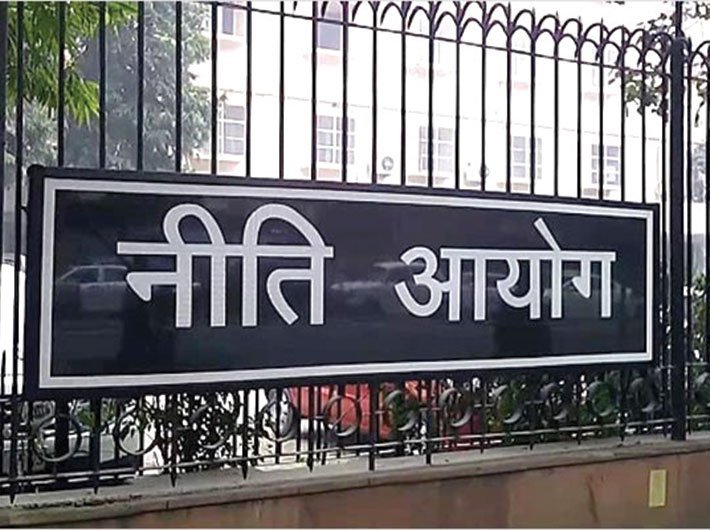There is certainly a case for having differential matching requirements with states contribution increasing as the shortfall in services reduces, says document submitted to Niti Aayog
Fiscal transfers from the centre to states are critical in India. Unlike in many developed federations when the tax base differentials are not very significant, India has large and growing horizontal fiscal imbalances besides a high degree of vertical imbalances arising from the assignment of tax powers and expenditure responsibilities in the Constitution, said a document submitted to the Niti Aayog.
“Design and implementation of general and specific purpose transfers is critical in Indian federation from the viewpoint of not only ensuring horizontal equity, balanced regional development and overall stability and integrity of the federation. This becomes even more important when the fact that there are significant hindrances to mobility of population and therefore, it is necessary to take capital to the people and not wait for the people to move towards capital,” said the document - Central transfers to states in India rewarding performance while ensuring equity.
The study was sponsored with financial support of NITI Aayog and conducted by National Institute of Public Finance and Policy, New Delhi.
“Analytically, general purpose transfers are given to offset fiscal disabilities of the States so that all the States are enabled to provide comparable levels of public services at comparable tax rates. However, given the large variations in fiscal disabilities in Indian states with per capita income in the highest income state is five times that of the lowest income state, it becomes difficult to design the general purpose transfers to fully offset the revenue and cost disabilities.
“Even the richest state suffers from physical and social infrastructure deficits and therefore clamours for transfers and this poses constraints on the extent of targeting and equalization through instruments like tax devolution. This brings in the importance of specific purpose transfer to ensure minimum standards of services considered meritorious or those with significant inter-state externalities,” it said.
The document pointed out that in India, after the recent changes in the institutional architecture, all general purpose transfers are given on the recommendations of the Finance Commission. The latest is the Fourteenth Finance commission whose recommendations have been implemented since 2015- 16. The second source of grants is from various central ministries which are scheme based. There are at present 28 centrally sponsored Schemes and another 45 central sector schemes for which grants are given by various central ministries.
“The analysis of intergovernmental transfers shows that that the tax devolution and grants given on the recommendations of the Finance Commission have a strong equalizing element whereas, those given by various Central Ministries do not. Even the former is able to offset the revenue disabilities of low income states only partially. The consequence of this is that the higher income states are able to incur significantly lager per capita expenditures on all 25 major social and economic services as well as in the aggregate. This tends to accentuate inequalities in social and economic infrastructures among the States leading to increasing divergence in developmental outcomes,” it said.
The study went on to say that there are a number of problems with the design and implementation of specific purpose transfers.
“First, there are too many schemes, often each with multiple objectives resulting in the thin spread of resources and inability to design the transfer system to achieve minimum standards of specified services. Second, these are not linked to service level outcomes but tend to be incremental. Thus, the transfers are not designed to achieve the basic purpose of ensuring minimum standards of services. Third, the large number of specific purpose transfer schemes taken up for equalization results in the thin spread of resources with hardly any impact on service levels.
“Fourth, the grants are not linked to improving service levels and it is not necessarily the States with larger shortfall in services receiving higher grants. Thus, educationally backward states do not get larger grants for education and states with lowest health standards of not get higher per capita grants for health. Fifth, there is considerable difference between the originally approved allocation and final release of funds under various schemes.”
The report noted that the central government may not be able to influence much as far as the Finance Commission’s recommendations are concerned as this is an independent body making assessments of Union and state finances and recommending tax devolution and grants.
“However, while providing guidelines to the Commission in the Terms of Reference, it can specify the need to design the devolution system to incentivise, tax effort, and expenditure efficiency in its recommendations. However, the Centre can certainly do well to rationalise the centrally sponsoring schemes. In the case of specific purpose transfers, the Centre has to determine the design itself,” it said.
“Here, it is important to limit the number of schemes and fund them adequately to make a difference to service level. It is important to link them to shortfall in specified services so that the overall objective of ensuring minimum standards is achieved. The design should result in increased outlay on the aided services. There is certainly a case for having differential matching requirements with states contribution increasing as the shortfall in services reduces.”


